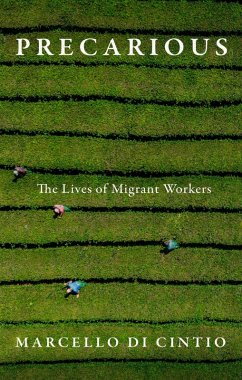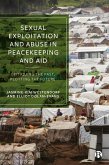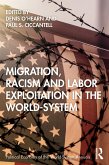Winner of the 2024 Dave Greber Freelance Writers Book Award
A series of profiles of foreign workers illuminates the precarity of global systems of migrant labor and the vulnerability of their most disenfranchised agents.
In 2023, United Nations Special Rapporteur Tomoyo Obokata spent two weeks in Canada, meeting with representatives from federal and provincial governments and human rights commissions, trade unions, civil society organizations, and academicsas well as migrants working in agriculture, caregiving, food processing, and sex work. His conclusion: the country's Temporary Foreign Worker program is a breeding ground for contemporary forms of slavery. I am deeply disturbed by the accounts of exploitation and abuse shared with me by migrant workers, Obotaka said in a statement. Workers complained of excessive hours and unpaid overtime; of being forced to perform dangerous tasks or ones not specified in their contracts; of being denied access to health care, language courses, and other social services; of being physically abused, intimidated, sexually harassed; of the overcrowded and unsanitary living conditions that deprived them of their privacy and dignity. In response, some farm owners and their advocates, angry at Obokata's comparison to slavery, defended the program, citing long standing relationships with workers who returned to their operations year after year. If the program is so damned bad, one farmer advocate asked, why do these guys keep coming back?
In Precarious: the Lives of Migrant Workers, Marcello Di Cintio seeks the answers to both the question and illuminates the charges that compelled it, researching the history of Canada's migrant labour program and speaking with migrant workers across industries and across the country to understand who, in this global elaborate enterprise, stands to gain, who to lose, and how a system that depends on the vulnerability of its most disenfranchised actors canor can'tbecome more just.
A series of profiles of foreign workers illuminates the precarity of global systems of migrant labor and the vulnerability of their most disenfranchised agents.
In 2023, United Nations Special Rapporteur Tomoyo Obokata spent two weeks in Canada, meeting with representatives from federal and provincial governments and human rights commissions, trade unions, civil society organizations, and academicsas well as migrants working in agriculture, caregiving, food processing, and sex work. His conclusion: the country's Temporary Foreign Worker program is a breeding ground for contemporary forms of slavery. I am deeply disturbed by the accounts of exploitation and abuse shared with me by migrant workers, Obotaka said in a statement. Workers complained of excessive hours and unpaid overtime; of being forced to perform dangerous tasks or ones not specified in their contracts; of being denied access to health care, language courses, and other social services; of being physically abused, intimidated, sexually harassed; of the overcrowded and unsanitary living conditions that deprived them of their privacy and dignity. In response, some farm owners and their advocates, angry at Obokata's comparison to slavery, defended the program, citing long standing relationships with workers who returned to their operations year after year. If the program is so damned bad, one farmer advocate asked, why do these guys keep coming back?
In Precarious: the Lives of Migrant Workers, Marcello Di Cintio seeks the answers to both the question and illuminates the charges that compelled it, researching the history of Canada's migrant labour program and speaking with migrant workers across industries and across the country to understand who, in this global elaborate enterprise, stands to gain, who to lose, and how a system that depends on the vulnerability of its most disenfranchised actors canor can'tbecome more just.
Dieser Download kann aus rechtlichen Gründen nur mit Rechnungsadresse in A, D ausgeliefert werden.









